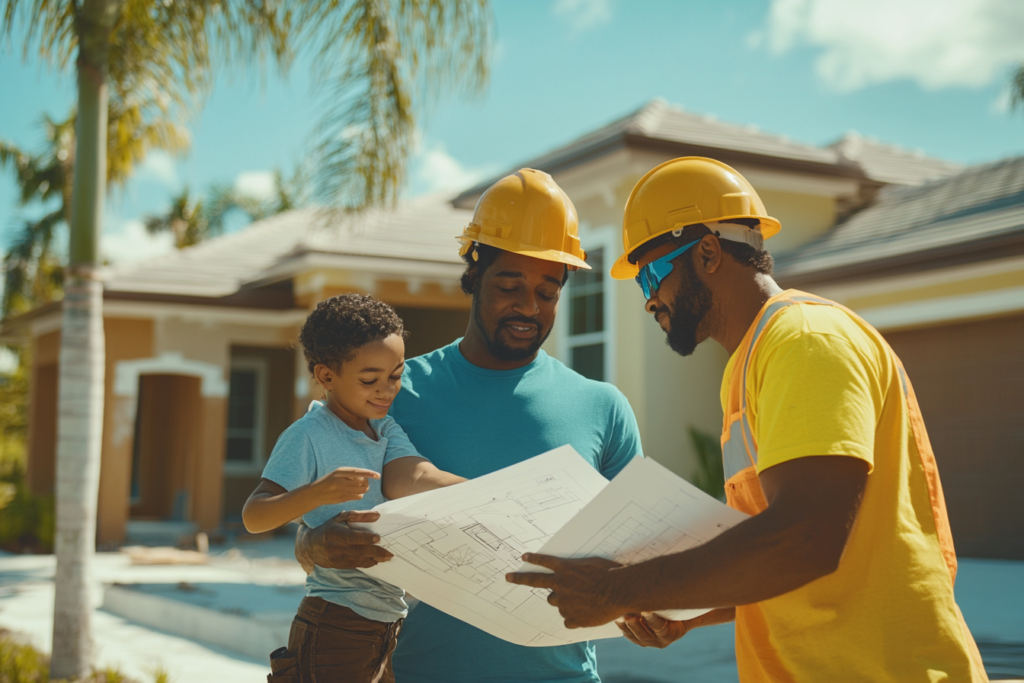Construction Loans Florida: A Guide to Building Your Dream Home

Florida is a popular destination for people looking to build their dream homes. However, construction can be a big financial commitment, which is where construction loans come in.
These loans are designed to cover the cost of building or remodeling a property. Whether you’re looking to construct a new home, renovate an existing one, or develop a commercial building, understanding construction loans in Florida is essential. This guide will explore how these loans work, what you need to qualify for, and tips to secure the best terms.

What is a Construction Loan?
A construction loan is a short-term, high-interest loan meant to cover the cost of building or renovating a property. Unlike a traditional mortgage, the funds from a construction loan are released in stages as the work progresses.
This staged release helps ensure the money is used correctly and on time. Construction loans typically cover materials, labor, and other construction-related expenses. They are usually converted to a standard mortgage or paid off at the end of the construction phase.
Types of Construction Loans in Florida
In Florida, there are a few main types of construction loans. The first type is the construction-to-permanent loan. This loan initially covers the construction cost and then converts to a regular mortgage once the project is complete.
Another type is the stand-alone construction loan, which covers construction but requires a separate mortgage afterward. Some people also choose renovation loans for major remodels of existing homes. Each type has pros and cons, depending on your financial needs and long-term goals.
Eligibility Requirements for a Construction Loan
Qualifying for a construction loan in Florida requires a few key steps. First, you’ll need a good credit score, typically above 680, though each lender’s requirements can vary. Second, lenders expect a detailed construction plan and timeline, usually prepared by your contractor.
Additionally, you’ll need to provide financial documentation, like bank statements and income verification. A down payment of around 20% is usually required for these loans, although this can vary by lender and loan type.

Key Factors Lenders Consider
Lenders assess multiple factors before approving a construction loan. These include your credit history, income, and debt-to-income ratio. They will also examine the project’s cost and scope.
Lenders prefer borrowers with a clear and feasible plan for the project, including a realistic budget. They may also require an appraisal of the land or existing property to ensure the loan value aligns with the project’s future value. All these factors help lenders evaluate whether you are a low-risk investment.
Stages of a Construction Loan
Construction loans, also known as “draws,” are released in stages to ensure funds are used as intended. After each construction phase, a lender’s inspector will evaluate the work to approve the next draw. Common stages include foundation work, framing, roofing, and final touches.
This process helps protect both the lender and the borrower. If issues arise or costs exceed expectations, adjustments can be made. Each draw is accompanied by an inspection, adding accountability to the project.
Interest Rates and Terms for Florida Construction Loans
This is because interest rates for construction loans are always higher than standard mortgage loans. Construction loans are considered more risky than most other loans as the building is being constructed.
Florida construction loans average between a 4% and 12% interest rate depending on your credit score, the size of the loan, as well as the package and procedures of the lender. Further, construction loans are flexible with shorter maturity periods, which can be between six months and two years. As soon as construction is made, the loan can be refinanced to a fixed rate, meaning that interest rates shall not fluctuate for future payments.

Preparing Your Construction Loan Application
Preparing the application to the right lenders makes it easier to be granted a construction loan. First, it is essential to provide some documents, starting with the detailed budget and the timing of the work and ending with information about contractors.
Check your credit report and make sure there are no mistakes. Higher credit scores will offer better terms. You also need to set aside some money for a larger down payment, which comes with lower borrowing costs. Irranco_ With an experienced contractor who knows the importance of CO and project timeline, you will have an appealing application to lenders.
Risks and Challenges to Consider
Like almost everything in life, construction loans are not without their dangers despite their benefits. Due to the rigid procedures, these are often expensive to obtain because of high interest rates and even difficult to obtain.
When constructing a house, there may be times when the construction takes longer than expected or more expenses are incurred. If the construction period is longer than the loan period, stress is likely to arise. Moreover, if the project stops meeting its finishing dates, the borrower can be forced to borrow another loan. Both are trying to keep some money to save for emergencies and a very well-developed project schedule.
FAQs
- What is the minimum down payment for a construction loan in Florida?
Most lenders require a down payment of around 20%, though some may accept as low as 10% depending on credit and project details. - How is the interest on a construction loan calculated?
Interest is charged only on the amount drawn for each construction phase, not the entire loan amount, which helps control interest costs. - Can I use a construction loan to buy land in Florida?
Yes, many construction loans allow you to finance both land purchase and construction costs. - What happens if construction takes longer than planned?
If delays occur, you may need to apply for a loan extension or additional financing, depending on the lender’s policies. - Is a construction loan different from a regular mortgage?
Yes, construction loans are short-term and cover only the building phase, while a regular mortgage is long-term for completed homes.
Final Thoughts
Florida construction loans are the best strategy for building a new home or for improving an existing one. These loans can fund specific projects of any scale, such as homes, office blocks, houses, flats, etc. If properly arranged, these loans easily provide a viable method of financing construction. However, it is safe to know the specifications and cons. When working with the loan provider and the contractor, one should hire competent service providers who can complete the work fast.
Keep Learning
> Debt To Income Ratio For FHA Loan: Tips for Approval
> Can You Buy A House With Bad Credit? Essential Tips and Strategies
> Assessed Value Vs Appraised Value: Key Differences and Uses

